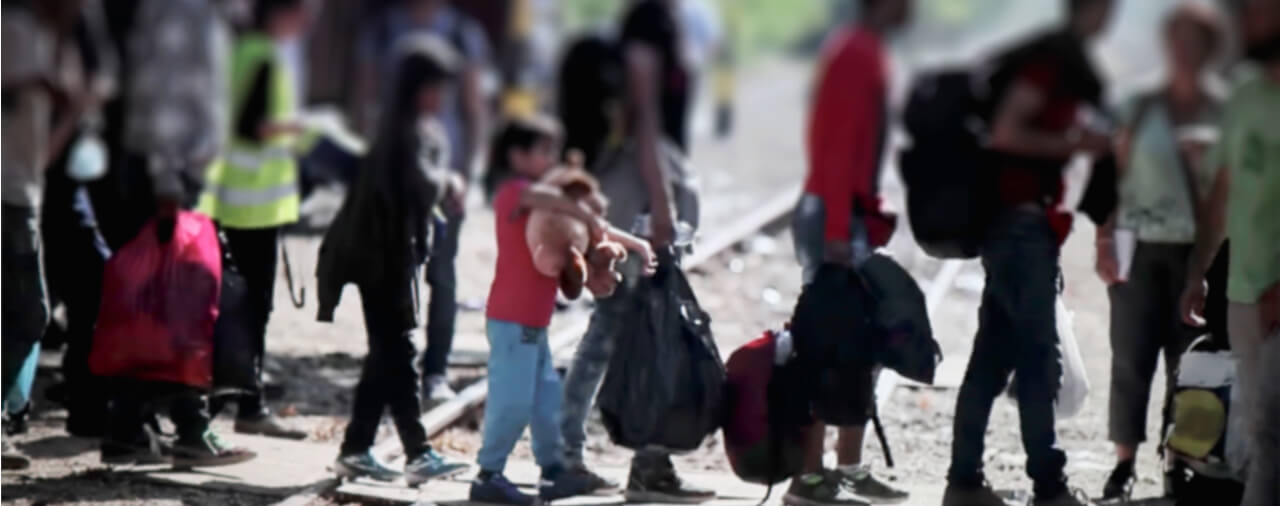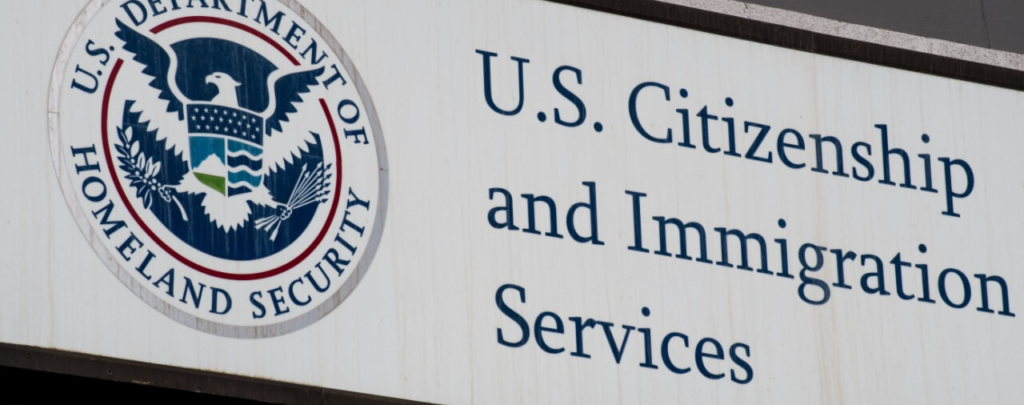Europe has had well-documented troubles attempting to absorb the massive influx of migrants and refugees from Iraq, Syria, and North Africa. Besides the obvious terrorism concerns that were exacerbated by the atrocities in Paris, there have been increasing incidents of sexual assault that are attributable to some among the migrants and refugees from the Middle East and Africa. Most notable were the sexual assaults in Cologne on New Year’s Eve.
I came across an interesting story in the Daily Caller that I will share with you [see article].1 According to the story, a group of 51 refugees who had been previously ordered to leave Norway due to unspecified “bad behavior” decided to hit a night club just across the border in Murmansk, Russia. Unfortunately, rather than enjoy the offerings of the night club in a legal way, the refugees decided to engage in further “bad behavior” by groping and harassing women in the night club.
Alas for the refugees engaged in “bad behavior,” they learned the hard way that Russia apparently treats “bad behavior” differently than its neighbors across the border. A group of Russian men took the refugees aside for educational purposes, apparently stating that “Cologne is 2,500 kilometers south of here.” The attempts by the refugees to flee this education were reportedly in vain, and they were summarily beaten by the group of Russian men that did not look kindly upon “bad behavior.” Eventually, Russia police arrived to break up the lesson, but not before offering an extracurricular lesson of their own. Ultimately, 33 refugees were arrested and 18 were hospitalized. The Russian police decided to let the lesson slide and opted not to file a report. However, the police did confirm that there was a “mass brawl involving refugees.”
Most of the debate over the admission of Syrian refugees to the United States centers on terrorism concerns. In a recent CNN Presidential Town Hall, Senator Marco Rubio eloquently stated: “If we accept 10,000 Syrian refugees tomorrow, and 9,999 of them were good people, and one of them was an ISIS killer, we have a big problem.”2 I could not agree with Senator Rubio more. From my experience with the refugee process, I do not think the United States is properly equipped for the task it has taken upon itself in seeking to admit 10,000 Syrian refugees in the next fiscal year. Furthermore, even with the best of procedures, Syria presents a unique set of challenges, such as the Islamic State reportedly having access to machines to print “authentic” Syrian passports and being able to give its militants stolen passports.3
However, the article about the absurd incident in Murmansk highlights the other concern with admitting large amounts of refugees: cultural considerations. When many people from a foreign culture enter a country all at once, it is less likely that they will be absorbed into the new culture and more likely they will bring whatever culture they are entering with-for better or for worse-in full to their new country. This is even encouraged by some. In 2008, the Islamist Prime Minister of Turkey, Tayyip Erdogan, thundered in Cologne (ironic in hindsight) in a speech to Turkish immigrants that “assimilation is a crime against humanity.”
Unfortunately, experience shows that it has been for worse in many European countries that admit huge numbers of migrants and refugees face an insurmountable challenge of assimilating the new arrivals into society. The results are often not encouraging. In November of 2015, Andrew McCarthy described at the National Review the case of Seine-Saint-Denis in France, where police killed Abelhamid Abaaoud, the mastermind of the Paris massacre. Citing compelling evidence, McCarthy explains how Seine-Saint-Denis, which has 600,000 Muslims (mostly immigrants from North Africa and the Middle East) out of 1.4 million inhabitants, now has 36 of its 40 departments designated by the French government as “sensitive urban zones,” that is places where French Law Enforcement treads lightly, if at all.4
In 2013, the Pew Research Center polled numerous predominantly Islamic countries about their views on a myriad of issues. While Syria was not among the countries polled, we can look at results from Iraq, which is also a source of the refugee and migrant issues. In the poll, 91% of respondents from Iraq stated that they believe Sharia Law should be the official law in their country. Of those who said Sharia should be the law of their country, 59% believed that it should only apply to Muslims while 34% believed it should apply to all people. 58% of these Iraqis said that stoning is the proper punishment for adultery and 42% that the death penalty is the proper punishment for leaving Islam.5 These statistics are, of course, not to say that all people in Iraq have views harshly incompatible with Western values. Indeed, there are many courageous Iraqis who risked their lives helping the United States during the war and have yet to be duly compensated. But these numbers, along with many of the other ones from the survey, paint a stark picture of how different the values of many in this region are from the Western World.
In the context of the spate of sexual assaults apparently perpetrated by migrants and refugees throughout Europe, it is important to remember that the majority of the Middle East and North Africa view women very differently than the Western World. When allowed to enter Europe en masse without any vetting or plan to assimilate the new arrivals, Europe by effect brings some of the worst of many countries in the Middle East and North Africa to its own shores. The European experience is showing the folly of do-gooders who fail to think before afflicting their best intentions on the people who elected them.
Given our size and cultural diversity, we are far better equipped to assimilate foreigners than Europe is. Nevertheless, while 10,000 refugees would likely not lead to gangs of migrant rapists and sensitive urban areas stateside, as Senator Rubio said, it only takes one bad apple out of 10,000 for catastrophe. Whatever the good intentions of the supporters of this plan may be, the United States is ill-equipped to ensure that the chances are even as low as 1 out of 10,000 chance that a bad apple would make it through the refugee vetting process. Accordingly, given the situation in Syria and the flaws of our vetting system, I oppose the plan to admit 10,000 Syrian refugees.
We see many variations of the question of how people of faith can oppose admitting refugees. It is true that any person of good will must be sympathetic to the victims of atrocities being perpetrated by the variety of bad actors in the Syrian conflict and across the region. What we can do is help the countries of the region help themselves. But what we cannot do to help cannot compromise the safety of the United States, whether that is done by inadvertently admitting a terrorist or admitting young men who apparently need a lesson administered by Russian men to learn that sexual assault is unacceptable.
However, as I often do, I would like to point out that Donald Trump’s proposal to ban Muslim immigration is absurd and counter-productive. The government has a duty to ensure that any person who is allowed into the United States is not a threat to the safety of its citizens or American values. If a person expresses sympathy to radical Islamist beliefs or extreme hostility to the United States and its values, he or she should not be admitted. At the same time, the normal immigration process, as flawed as it may be in many respects, does not present the same challenges as vetting 10,000 Syrian refugees. To be sure, there is a significant difference between admitting refugees or migrants from Syria and Iraq and admitting persons through the normal immigration process. For one, Muslim intending entrants are not monolithic. It would be ignorant to see Syria as the same as secular Muslim-majority countries such as Albania and Azerbaijan. The majority of Muslims who are citizens of western countries do not share the same theocratic preferences as the majority of the Iraqi citizenry. Provided that immigration enforcement is willing to ask the right questions and do its due diligence in the nonimmigrant and immigrant visa application processes, it has the tools to sift out malevolent persons seeking entry, whether they are Islamist or any other -ist that would threaten the safety of the American homeland.
I encourage people to carefully consider the issues, without deference to political correctness on one hand or frothing Trumpian populism on the other.
- J. Bojesson, “Refugees Go Clubbing In Russia, Harass Girls, Wake Up In Hospital The Next Morning,” Daily Caller, (Feb. 2, 2016), available at http://dailycaller.com/2016/02/04/refugees-go-clubbing-in-russia-harass-girls-wake-up-in-hospital-the-next-morning/ [link]
- http://cnnpressroom.blogs.cnn.com/2016/02/17/rush-transcript-senator-marco-rubiocnn-republican-presidential-town-hall-greenville-sc/ [link]
- T. Wyke, “Has ISIS got its own passport machine? US intelligence fear jihadists may be printing false Syrian identity documents to infiltrate the West,” Daily Mail, (Dec. 11, 2015), available at http://www.dailymail.co.uk/news/article-3355673/Has-ISIS-got-passport-machine-intelligence-fear-jihadists-printing-false-Syrian-identity-documents-infiltrate-West.html [link]
- A. McCarthy, “France’s No-Go Zones: Assimilation-Resistant Muslims Are the Real Refugee Problem,” NRO, (Nov. 18, 2015), http://www.nationalreview.com/article/427302/frances-fifth-column-muslims-resist-assimilation [link]
- Pew Research Center, “The World’s Muslims: Religion, Politics And Society: Chapter 1: Beliefs About Sharia,” Pew, (Apr. 30, 2013), available at http://www.pewforum.org/2013/04/30/the-worlds-muslims-religion-politics-society-beliefs-about-sharia/ [link]





